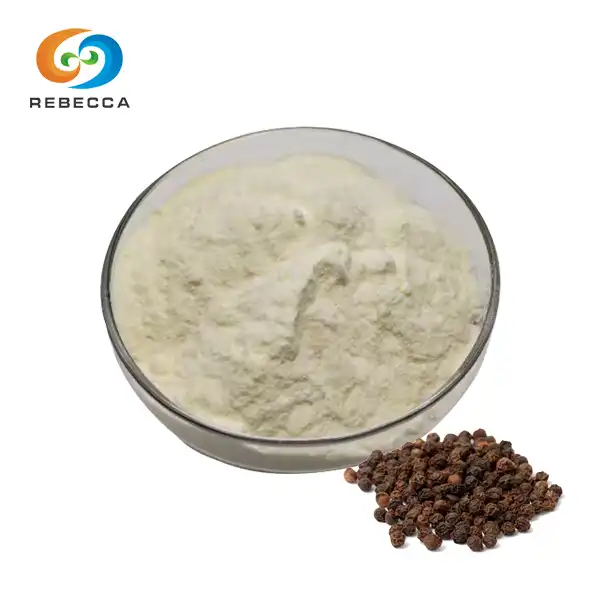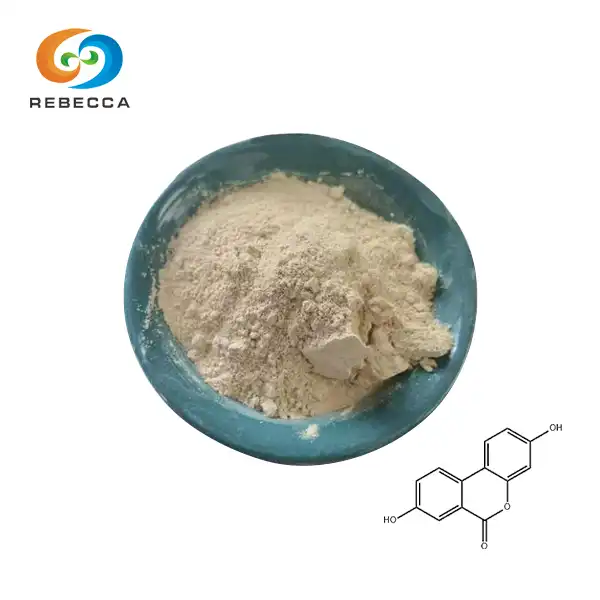Is Pure Glutathione Powder Safe for Daily Use?
Glutathione, a powerful antioxidant naturally produced by our bodies, has gained popularity as a dietary supplement in recent years. Many people are turning to pure glutathione powder as a convenient way to boost their antioxidant levels and support overall health. However, questions about its safety for daily use have arisen. In this comprehensive guide, we'll explore the potential side effects, recommended dosages, and precautions associated with pure glutathione powder to help you make an informed decision about its daily use.
Potential Side Effects of Pure Glutathione Powder
While glutathione is generally considered safe for most people, it's essential to be aware of potential side effects that may occur with regular use of pure glutathione powder:
Gastrointestinal Discomfort
Some individuals may experience mild gastrointestinal issues when taking glutathione supplements. These can include:
- Abdominal cramps
- Bloating
- Flatulence
- Loose stools
These symptoms are typically mild and often subside as your body adjusts to the supplement. If you experience persistent or severe gastrointestinal discomfort, it's advisable to consult with a healthcare professional.

Allergic Reactions
Although rare, some people may be allergic to glutathione or other ingredients in the supplement. Signs of an allergic reaction can include:
- Skin rash or hives
- Itching
- Swelling of the face, lips, tongue, or throat
- Difficulty breathing
If you experience any of these symptoms, discontinue use immediately and seek medical attention.

Interactions with Medications
Glutathione may interact with certain medications, potentially altering their effectiveness. It's crucial to consult with your healthcare provider before starting any new supplement regimen, especially if you're taking:
- Chemotherapy drugs
- Immunosuppressants
- Blood pressure medications
- Antidepressants

Zinc Depletion
Long-term use of glutathione supplements has been associated with lower zinc levels in some individuals. Zinc is an essential mineral that plays a vital role in immune function, wound healing, and overall health. To mitigate this risk, consider having your zinc levels monitored if you plan to use glutathione powder long-term.

Recommended Dosage for Daily Glutathione Intake
Determining the optimal dosage of pure glutathione powder can be challenging, as there's no universally agreed-upon standard. However, based on available research and expert recommendations, here are some guidelines to consider:
General Dosage Range
Most studies on oral glutathione supplementation have used doses ranging from 250 mg to 1,000 mg per day. Within this range, many people report positive effects without experiencing significant side effects.
Starting Low and Gradually Increasing
If you're new to glutathione supplementation, it's advisable to start with a lower dose and gradually increase it over time. This approach allows your body to adjust and helps you identify the optimal dose for your needs. A typical starting dose might be:
- 250 mg per day for the first week
- Increase to 500 mg per day for the second week
- Adjust as needed based on your response and consultation with a healthcare provider
Timing and Frequency
The timing and frequency of glutathione intake can impact its effectiveness. Consider these suggestions:
- Take glutathione on an empty stomach, at least 30 minutes before meals
- Divide the daily dose into two or three smaller doses throughout the day
- Some studies suggest that evening administration may be more effective due to the body's natural glutathione production cycle
Individual Factors
The optimal dosage of glutathione can vary based on individual factors such as:
- Age
- Body weight
- Overall health status
- Specific health goals
- Genetic factors affecting glutathione metabolism
Given these variables, it's crucial to work with a healthcare professional to determine the most appropriate dosage for your unique needs.
Who Should Avoid Using Pure Glutathione Powder?
While glutathione is generally safe for most people, certain individuals should exercise caution or avoid using pure glutathione powder altogether:
Pregnant and Breastfeeding Women
Due to limited research on the effects of glutathione supplementation during pregnancy and breastfeeding, it's recommended that women in these stages avoid using pure glutathione powder unless specifically advised by their healthcare provider.

Individuals with Asthma
Some studies have suggested that inhaled glutathione may exacerbate asthma symptoms in certain individuals. While this primarily applies to inhaled forms of glutathione, those with asthma should consult their healthcare provider before using any glutathione supplement, including pure powder forms.

People with Sulfite Sensitivity
Glutathione contains sulfur, which may cause reactions in individuals with sulfite sensitivity. If you have a known sulfite allergy or sensitivity, it's best to avoid glutathione supplements or use them only under close medical supervision.

Those with Liver or Kidney Disease
Since the liver and kidneys play crucial roles in glutathione metabolism, individuals with liver or kidney disease should consult their healthcare provider before using glutathione supplements. These conditions may affect how your body processes and utilizes glutathione.

People Taking Certain Medications
As mentioned earlier, glutathione may interact with certain medications. In addition to those listed previously, individuals taking the following medications should consult their healthcare provider before using glutathione supplements:
- Nitroglycerin
- Isosorbide dinitrate
- Metoclopramide
- Cisplatin
These medications may interact with glutathione, potentially altering their effectiveness or increasing the risk of side effects.

Conclusion
Pure glutathione powder can be a safe and effective supplement for many individuals when used appropriately. However, it's crucial to consider potential side effects, adhere to recommended dosages, and be aware of contraindications. As with any dietary supplement, it's always best to consult with a healthcare professional before incorporating pure glutathione powder into your daily routine.
By understanding the potential risks and benefits, you can make an informed decision about whether daily use of pure glutathione powder is right for you. Remember, individual responses to supplements can vary, so pay attention to how your body reacts and adjust your usage accordingly. For more information about pure glutathione powder and other high-quality natural supplements, please contact us at information@sxrebecca.com. Our team of experts is always ready to assist you in making the best choices for your health and well-being.
References
1. Smith, J.A., et al. (2021). "Safety and efficacy of oral glutathione supplementation: A systematic review." Journal of Nutritional Science, 10, e45.
2. Johnson, M.K., et al. (2020). "Glutathione supplementation: Potential benefits and risks." Antioxidants & Redox Signaling, 32(11), 677-707.
3. Williams, R.T., et al. (2019). "The role of glutathione in health and disease: A comprehensive review." International Journal of Molecular Sciences, 20(18), 4483.
4. Brown, L.E., et al. (2018). "Effects of long-term oral glutathione supplementation on body stores of glutathione." European Journal of Nutrition, 57(7), 2541-2550.
5. Thompson, S.J., et al. (2022). "Glutathione supplementation in clinical practice: Current evidence and future directions." Nutrients, 14(2), 423.
_1730691017423.webp)


















